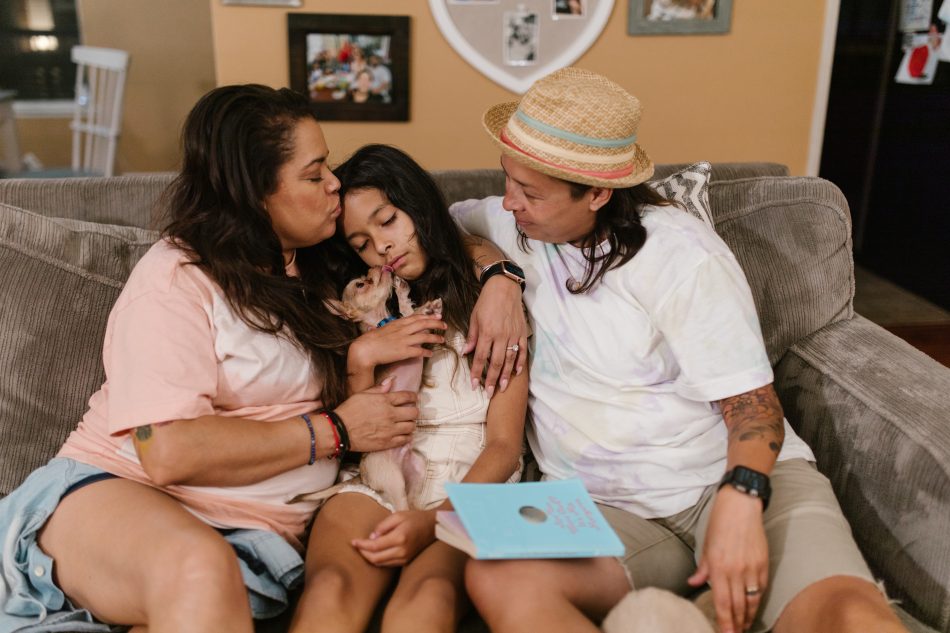Mother’s Day is a time to honour and celebrate your mother, but it can also be a hard day if your mum has passed away. It’s a reminder of the loss you feel and carry with you everyday.
While time does help and it gets easier as the years pass by, it doesn’t change the fact that she isn’t here – and it’s natural for your pain and sadness to be heightened on days like Mother’s Day.
When you’ve lost your mother
As Mother’s Day approaches, lots of people make plans to spend time with their mum. Some families will meet up for a long lunch while others may plan a special weekend away together. For those who are lucky enough to have their mother in their life, it can be a great day, but for those who have lost their mother, it can be a really hard.
Whether you’re young or old, single or married, a parent or not, losing your mother, mother-in-law, grandmother or other mother figure in your life is one of the most difficult experiences.
If you’re struggling with grief this Mother’s Day, know that you’re not alone. Here are some things you can do to help make coping with the day a little easier.
-
Do something she loved.
Was there something your mum especially enjoyed doing? If she loved gardening, buy some plants and plant them in your yard in her memory. If she liked to bake, make one of her favourite recipes. If she liked to hike, take a long walk and think about her. Doing something your mother loved is a lovely way to celebrate her on this day.
-
Practice self-care
Sleep in. Go for a walk. Eat a nice meal. Treat yourself to a massage. Do things that bring you comfort and make you smile.
-
Write a letter
Take the time to write some words to your mother. Think about a favourite time or recall an important life lesson she taught you. Pour out your feelings on paper or tap away on your computer keyboard, and be honest about everything you’re feeling.
-
Find the right company
Be selective with your company on Mother’s Day. Surround yourself with people who know your situation and understand that the day might be difficult for you. Better yet, find someone in the same boat and do something together. It can make the load much lighter to bear.
-
Allow yourself to grieve
It’s inevitable that Mother’s Day will bring up some powerful feelings for those grieving the loss of a mother. Give yourself the time to process them in a way that is healthy and beneficial for you, whether that is alone or with others. Don’t be afraid to reach out for help and treat yourself gently as you process your grief.
-
Ask for help
If you start to feel overwhelmed by sadness and grief, reach out to a family member, friend or counsellor. Help and support can make all the difference.
Remember your mum
Grief and loss is something we all experience at one point in our lives, and having strategies in place to cope with those special days like Mother’s Day can help make the process a little easier to navigate.
Focus on what your mum meant to you and what you learnt from her. What is your mother’s legacy? Why was she important to you? And remember, Mother’s Day is a special day for celebrating and remembering mothers, grandmothers and others, whether they’re living or not.
Want to know more?
Motherless Daughters is an Australian not-for-profit organisation dedicated to supporting girls and women whose mums have died.
The organisation was founded in 2013 by two Victorian women with the hope of making a difference to the lives of those who have lost their mums. They believe that identification and being in contact with other motherless daughters is both therapeutic and comforting.
Motherless Daughters provides support through events, functions and an online space that connects women and girls of all ages.
To find out more, go to motherlessdaughters.com.au
The information on this website is for general information only and are not (and nor are they intended to be) a substitute for professional medical or mental health advice, nor is it used for diagnosis and treatment. You, or anyone you are concerned about, are encouraged to seek professional medical or mental health advice and treatment from suitably qualified medical and clinical practitioners and providers.
Our full terms and conditions are available here
If you are in crisis or think you may have an emergency, immediately call Emergency 000. If you're having thoughts of self-harm or harm to others call Lifeline on 13 11 23 to talk to a skilled, trained counsellor. If you are located outside Australia, contact your local emergency line directly.






